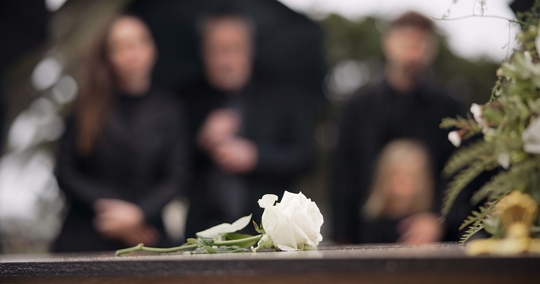Who Can File a Wrongful Death Lawsuit in Georgia and Tennessee?
When a loved one dies due to the recklessness, negligence, or misconduct of another, surviving family members may have the right to file a wrongful death lawsuit in Georgia or Tennessee. However, both Georgia and Tennessee law strictly regulate who is authorized to file wrongful death claims, establishing a clear hierarchy of eligible claimants.
Let’s review the differences and similarities in the states’ legal frameworks to help families of victims in North Georgia and Chattanooga, TN seek justice and compensation.
Georgia’s Wrongful Death Claimant Hierarchy and Legal Framework
Georgia’s wrongful death laws are codified in Title 51, Chapter 4 of the Georgia Code. The primary statute is O.C.G.A. § 51-4-2, which outlines the order in which family members may bring a claim:
“The surviving spouse or, if there is no surviving spouse, a child or children, either minor or sui juris, may recover for the homicide of the spouse or parent the full value of the life of the decedent, as shown by the evidence.”
1. Surviving Spouse
The surviving spouse is always the first in line to file a wrongful death lawsuit in Georgia. Even if the marriage was brief or the couple was separated (but not divorced), the spouse retains this primary status. If there are surviving children, the spouse must share any recovery with them, receiving at least one-third of the total, regardless of the number of children. If minor children are involved, the spouse acts as their legal representative and cannot settle the claim without court approval.
2. Surviving Children
If there is no surviving spouse, the right to file passes to the decedent’s surviving children. This includes biological children, legally adopted children, and children born out of wedlock if paternity was established. All children must act together in bringing the claim.
3. Parents or Guardians
If the decedent was unmarried and had no children, the right to file passes to the parents. Married parents file jointly, while separated or divorced parents may have their recovery allocated by the court. Notably, a parent who abandoned the child during their minority may be barred from recovery.
4. Estate Administrator
If there are no surviving spouse, children, or parents, the administrator or executor of the estate may file the wrongful death claim under the Georgia code. Damages recovered in this scenario are held for the benefit of the next of kin.
Georgia’s law also addresses the situation where a surviving spouse dies during the pendency of a wrongful death action. In such cases, the action may survive to the children of the decedent.
Tennessee’s Wrongful Death Claimant Hierarchy and Legal Framework
Tennessee’s main statute is Tenn. Code § 20-5-106, which establishes the order of priority for claimants. The surviving spouse and children are respectively the first and second in line, just as in Georgia, but subtle differences emerge afterward.
Next of Kin
If there is no surviving spouse or child, the right to file passes to the next of kin.
Parents of Minors or Dependent Adults
If the decedent was a minor or a financially dependent adult, the parents may file.
Estate Administrator
If there are no eligible family members, the personal representative or administrator of the estate may file the claim.
Key Considerations for Families in North Georgia and Chattanooga
From minor fender-bender car accidents to slips, trips, and falls, accidents happen all too often. Following a catastrophic or fatal injury of a loved one in North Georgia and Tennessee, you may have the right to file a wrongful death suit against another person or entity. But it’s easy to get overwhelmed. Pritchard Injury Firm has deep experience helping families navigate these complex rules and securing the compensation they deserve.
Your GA/TN Catastrophic and Fatal Accident Lawyer
You should call a lawyer if your loved one has died from an injury caused by the actions of another person. Pritchard Injury Firm’s North Georgia/TN fatal accident lawyers can evaluate the claim and take steps to build and strengthen your case. Contact Pritchard Injury Firm for a free consultation.

